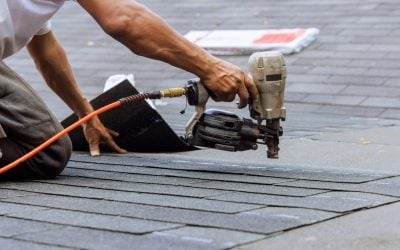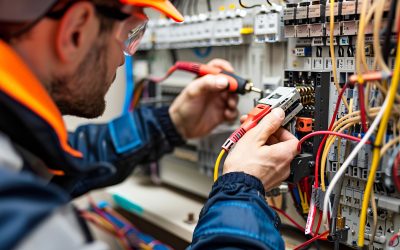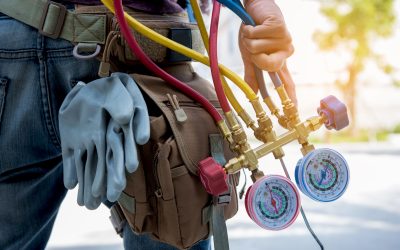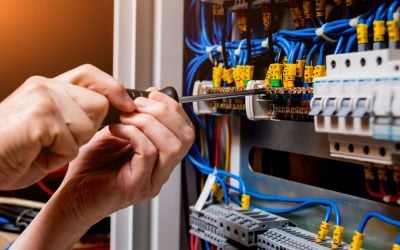Maryland Home Improvement License
Based on Home Improvement Law, Door-to-Door Sales, Labor Laws, Safety Regulations, and Estimating
Apply for the license
Having a license establishes your credibility and reliability to work in Maryland.
c. Examination: Once the application is processed and deemed complete, applicants will be scheduled to take the written examination. Passing this exam is a prerequisite for obtaining the license.
d. Background Check: The MHIC will conduct a criminal background check on the applicant to ensure compliance with state regulations.
e. Issuance of License: Upon successful completion of the above steps, the MHIC will issue the Maryland Home Improvement License to the contractor.
4. Scope of Work:
With a Maryland Home Improvement License, contractors are authorized to perform a wide range of home improvement work, including but not limited to:
a. Remodeling: This includes interior and exterior remodeling projects such as kitchen renovations, bathroom upgrades, room additions, and structural alterations.
b. Repairs: Contractors can undertake various repair jobs, including fixing plumbing issues, electrical problems, roofing damage, and other maintenance tasks.
c. Renovations: Home improvement contractors are skilled in renovating outdated or deteriorating properties to enhance their aesthetic appeal, functionality, and energy efficiency.
d. Installation: Contractors can install new fixtures, appliances, flooring, windows, doors, siding, and other components as part of home improvement projects.
e. Landscaping: While landscaping may require additional licensing or permits depending on the scope of work, home improvement contractors can often undertake landscaping tasks such as patio construction, deck installation, and garden enhancements.
f. Restoration: In the event of fire damage, water damage, or other disasters, licensed contractors can undertake restoration efforts to rebuild and repair affected properties.
Conclusion:
Obtaining a Maryland Home Improvement License is a crucial step for contractors looking to legally operate in the state. By fulfilling the necessary requirements, including experience, financial solvency, insurance coverage, passing an examination, and undergoing a background check, contractors can obtain this license and engage in a variety of home improvement projects. The license not only provides legal authorization but also instills confidence in consumers that the contractor meets certain competency and ethical standards. With the scope of work permitted under this license, contractors can contribute to enhancing and maintaining residential properties across Maryland, ensuring the safety, comfort, and satisfaction of homeowners.
About the Maryland Home Improvement License
Books needed for the Maryland Home Improvement License Exam:
- Maryland NASCLA Contractors Guide to Business, Law and Project Management, 6th Edition
- Maryland NASCLA Home Improvement Salesperson Reference Guide, 5th edition
Exam Provider
There are specific fees associated with the license application and renewal. The standard license fee is $325, with a renewal fee of $305. For sales contractors, the fee is reduced to $75. Additionally, applicants are required to submit various documents alongside their application:
- Credit report
- $75 for the Guaranty Fund
- Proof of liability insurance
In the event of any changes within your business, such as alterations to directors or entity names, or if the business is sold, notification must be provided to the Commission board within 10 days of the change.
Furthermore, applicants with convictions related to home improvement projects must communicate with the Maryland Home Improvement Commission and provide copies of conviction records.
To obtain a home improvement license in Maryland, applicants must meet certain criteria:
- Demonstrate a minimum of two years of experience in home improvement work, construction, or related education.
- Provide evidence of financial stability based on the scale and nature of the business, including a credit report, net worth, and proof of financial solvency. Alternatively, applicants who fail to meet these criteria may opt to purchase a surety bond or secure an indemnitor.
- If representing a corporation, submit articles of incorporation and a Certificate of Good Standing from the Department of Assessments and Taxation.
- Register any trade names with the Commission and the Department of Assessments and Taxation, if applicable, and provide a certificate of trade name registration with the license application.
- Furnish proof of current $50,000 liability insurance with the licensure application.
To register for the licensing exam, contact PSI Examinations.
For those seeking an original license, necessary application forms and supporting documents can be accessed on the Maryland DLLR website. These documents may include:
- Contractor’s Personal Financial Statement
- Co-Owner’s Signature (if assets are co-owned)
- Surety bond forms if financial solvency guidelines are not met, along with relevant indemnitor information.
- PSI Application for the MD HI Exam, including the Experience Verification Form.
Tests Related To Minnesota Home Improvement License
2018 IBC Roofing Practice Exam
2018 IBC Roofing Practice ExamPass your Oklahoma Roofing Exam with ConfidenceAre you feeling overwhelmed about your upcoming roofing license exam? You're not alone. Many successful...
Maryland Home Improvement Salesperson Free Practice Test
Maryland Home Improvement Salesperson Free Practice TestPass your MHIC Salesperson License Exam for free!Want to pass your Maryland Salesperson exam at PSI on your first try? Practice tests...
ICC T17 Certification Practice Exam
ICC T17 Journeyman Electrician Certification Practice ExamPass your ICC Electrical Certification Exam with ConfidencePreparing for the ICC T17 open-book exam? Don't just rely on the...
NFPA NEC 70 Practice Questions
NFPA 70 NEC 2020 Practice ExamPass your NFPA 70 Certification with ConfidenceElectrical safety isn’t just a requirement—it’s a lifesaving skill. The NFPA NEC 70 certification ensures you...
ICC F11 Free Practice Exam
ICC F11 Free Practice TestPass your ICC F11 Exam for Free!Preparing for your ICC F11 exam? Don’t go in unprepared—test your knowledge with our free practice exam! This Pearson Vue ICC F11 free...
Residential HVAC License Free Exam
Modern Refrigeration and Air ConditioningFree Practice Exam Pass your HVAC License Exam with ConfidenceWorried about achieving the 70% passing score required for your Residential HVAC...
Free Ugly’s Electrical Reference Exam | NEC Practice
Ugly's Electrical References Free ExamPass your NEC Electrical License Exam for FreeStruggling with the NEC exam? Don’t waste time flipping aimlessly through pages—master Ugly’s Electrical...
ICC T16 Master Electrician Practice Exam
ICC T16 Master Electrician Practice ExamPass your Master Electrician Certification Exam with ConfidenceReady to conquer your ICC T16 exam? Our comprehensive practice test mirrors the exact...
Maryland Salesperson Fast Practice Exam
Maryland Home Improvement Salesperson Fast Practice Test(Maryland) Contractor License Struggling with Maryland Salesperson License Exam Anxiety? Our Proven Salesperson Exam Prep Makes the...
F.A.Q.
Here are some of our frequently asked questions:
Are these the questions that are on the test?
I pass the practice tests with no problem, now what?
Once I pass the protored test, can I do licensed work?
In many jurisdictions, license holders are obligated to undertake ongoing education on a yearly or biennial basis to ensure license renewal.
I can't pass the practice tests. Please help?!
How come you don't bundle the books together with tabs like other websites?
The majority of state licensing exams are designed as OPEN BOOK assessments, indicating that success is not contingent on rote memorization. Instead, the aptitude to swiftly locate answers holds greater significance than committing content to memory. We firmly hold the belief that our Practice Exams serve a dual purpose: not only will they enhance your familiarity with the subject matter at hand, but they will also cultivate your proficiency in promptly and effectively retrieving answers from any reference material.








